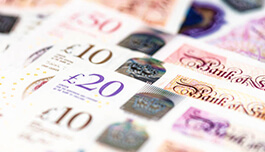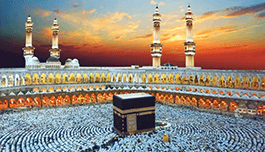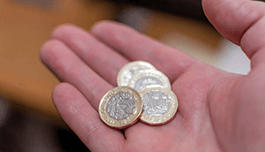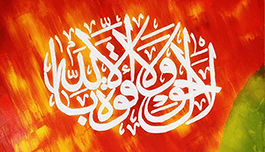Performing good deeds brings numerous benefits both in this life and the Hereafter.
A believer who persists in performing righteous deeds will have a good life filled with blessings, guidance and Allah’s love and mercy. Such deeds also bring numerous benefits after death, including protection from the punishments of the grave, an easy reckoning on Judgement Day and admission to the highest ranks in Paradise.
A believer should increase their good deeds, for life is short and the end is near, and a person does not know when death will surprise him. Allah, the Exalted, said: “Then those whose scales are heavy [with good deeds], they are the successful.” (Qur’an, 7:8).
What Are Good Deeds in Islam?
Righteous deeds encompass everything that pleases Allah Almighty, whether in words or actions. These deeds include the actions of the heart and the limbs, such as believing in Allah, praying, fasting, reading the Qur’an, giving in charity and feeding the poor.
The Three Conditions for Good Deeds to Be Accepted
- Islam: Good deeds must be performed by a believer in Islam, acknowledging the oneness of Allah and the prophethood of Muhammad ﷺ. Non-believers’ deeds hold no value in the Hereafter, even if they are rewarded in this life.
- Sincerity to Allah: Deeds must be done with the intention of seeking Allah’s pleasure, not for worldly gains, showing off or fame. The Prophet ﷺ said, “Allah, the Exalted, says: “I am the most self-sufficient and am in no need of any associate. Whoever does an action for someone else’s sake as well as Mine will have that action rejected by Me.”” (Narrated by Muslim (2985)).
- Following the Sunnah: Deeds must align with the practices of the Prophet Muhammad ﷺ. When three men proposed extreme acts of worship, the Prophet corrected them, saying, “I fast and break my fast; I pray and I sleep, and I also marry women. So whoever does not follow my tradition in religion is not from me.” (Narrated by Al-Bukhari (5063), Muslim (1401), Al-Nasa’i (3217) and Ahmad (13727)).
The Fruits of Righteous Deeds
Perseverance in righteous deeds has many benefits and fruits that bring great benefits both in this life and the Hereafter.
1. A Good Life
Allah, the Exalted, says: “Whoever does good, whether male or female, and is a believer, We will surely bless them with a good life, and We will certainly reward them according to the best of their deeds.” (Qur’an, 16:97).
2. Guidance from Allah
Allah, the Exalted, says: “Indeed, those who have believed and done righteous deeds – their Lord will guide them because of their faith. Beneath them rivers will flow in the Gardens of Pleasure.” (Qur’an, 10:9).
This means He increases them in guidance, success and reward in this world and the Hereafter with the honour and bliss He has prepared for them.
3. Earning The Love and Mercy of Allah
Righteous deeds are a cause for earning Allah’s love and mercy. When a servant attains Allah’s love, Allah guides them in all their actions and decisions and directs them towards what He loves and is pleased with.
This is confirmed in the authentic saying of the Prophet ﷺ in which he relates from his Lord: “And My servant continues to draw near to Me with voluntary deeds until I love him. When I love him, I am his hearing with which he hears, his sight with which he sees, his hand with which he strikes, and his foot with which he walks. Were he to ask something of Me, I would surely give it to him, and were he to seek refuge with Me, I would surely grant him refuge.” (Narrated by Al-Bukhari (6502))
Allah, the Exalted, says: “Indeed, those who believe and do righteous deeds – the Most Merciful will bestow love for them.” [Qur’an, 19:96]
And in another verse: “As for those who believed and did good, their Lord will admit them into His mercy. That is the absolute triumph.” (Qur’an, 45:30).
4. Forgiveness of Sins
Performing righteous deeds will wipe out a servant’s sins and misdeeds. Allah, the Almighty, says: “And those who believe and do righteous deeds and believe in what has been sent down upon Muhammad – and it is the truth from their Lord – He will remove from them their misdeeds and amend their condition.” (Qur’an, 47:2).
He also says: “And establish prayer at the two ends of the day and at the approach of the night. Indeed, good deeds do away with misdeeds.” (Qur’an, 11:114).
Abu Hurairah narrated that he heard the Messenger of Allah ﷺ say: “What do you think if there was a river by the door of any one of you and he bathed in it five times a day, would there be any trace of dirt left on him?” They said, “No trace of dirt would be left on him.” He said, “That is like the five daily prayers, by means of which Allah erases sin.” (Narrated by Al-Bukhari (528), Muslim (667) and Al-Tirmidhi (2868)).
5. A Good Death
Those who persist in doing good deeds are blessed with a good end.
Allah, the Almighty, says: “Those whose souls the angels take while they are virtuous (i.e. doing good), saying ˹to them˺, “Peace be upon you! Enter Paradise for what you used to do.” (Qur’an, 16:32).
The Prophet ﷺ said: “When Allah wants good for a servant, He uses him.” It was asked: “How does He use him, O Messenger of Allah?” He replied: “He enables him to do a good deed before he dies.” (Narrated by Al-Tirmidhi (2142), Ahmad (12055), Ibn Hibban (341), and Al-Hakim (1257). Authenticated by Al-Tirmidhi).
Anyone who is deprived of doing righteous deeds has been deprived of all goodness, may Allah protect us.
6. Protection from the Torment of the Grave
Righteous deeds also serve as protection in the grave, the first stage of the Hereafter.
Abu Hurairah reported that the Prophet ﷺ said:
“When the deceased is placed in his grave, he hears the sound of their sandals as they depart. If he is a believer, prayer stands by his head, fasting by his right side, charity by his left, and good deeds such as charity, prayer, and kindness to people by his feet. When he is approached from his head, prayer says, ‘There is no entrance from my side.’ When approached from his right, fasting says, ‘There is no entrance from my side.’ When approached from his left, charity says, ‘There is no entrance from my side.’ When approached from his feet, good deeds say, ‘There is no entrance from my side.’
He is then told to sit up, and it appears as if the sun is setting. He is asked about the man who was sent to them. He replies, ‘Let me pray first.’ He is told, ‘You will have time for that; first, answer our questions.’ He is then asked, ‘What do you say about this man who was among you?’ He replies, ‘Muhammad? I testify that he is the Messenger of Allah and that he brought the truth from Allah.’ He is told, ‘You lived upon this, you died upon this, and if Allah wills, you will be resurrected upon this.’
A gate to Paradise is then opened for him, and he is shown his place in it, increasing his happiness and joy. Then, a gate to Hell is opened, and he is shown his place in it had he disobeyed, which further increases his happiness. His grave is then expanded seventy cubits, illuminated, and his body is returned to its original state. His soul is placed among the righteous souls, which are birds that perch in the trees of Paradise.
This is the meaning of the verse: ‘Allah keeps firm those who believe, with the firm word, in worldly life and in the Hereafter. And Allah sends astray the wrongdoers. And Allah does what He wills.’ (Qur’an, 14:27).”
(Narrated by Ibn Abi Shaybah (12188), Ibn Hibban (3113), Al-Tabarani in “Al-Awsat” (3/105) and Al-Hakim (1403). Al-Haythami said in Al-Zawa’id (3/53): “Its chain of transmission is good.”).
Ibn al-Qayyim noted, “These deeds—prayer, charity, fasting, and acts of kindness—are among the reasons for salvation from the torment and trials of the grave.” (Asbab ‘Adhab al-Qabr, p. 8).
7. Shade on the Day of Judgement
Whoever persists in certain righteous deeds will be among those whom Allah will shelter in His shade on the Day of Judgement.
The Prophet ﷺ said: “There are seven whom Allah will shade with His shade on the day when there will be no shade except His: the just ruler; a young man who grows up worshipping his Lord; a man whose heart is attached to the mosque; two men who love one another for the sake of Allah and meet and part on that basis; a man who is called by a woman of rank and beauty and says ‘I fear Allah’; a man who gives in charity and conceals it to such an extent that his left hand does not know what his right hand gives; and man who remembers Allah when he is alone, and his eyes fill up.” (Narrated by al-Bukhari (620) and Muslim (1712)).
8. A Flawless Record of Deeds
Allah, the Almighty, has appointed two angels that record a person’s good and bad deeds. These records will be presented on the Day of Judgement and will determine whether a person will go to Paradise or Hellfire.
Allah describes the happiness of the people who believed and did good deeds in the following verses:
“As for those given their records in their right hand, they will cry ˹happily˺, “Here ˹everyone˺! Read my record! I surely knew I would face my reckoning.” They will be in a life of bliss, in an elevated Garden, whose fruit will hang within reach. ˹They will be told,˺ “Eat and drink joyfully for what you did in the days gone by.” (Qur’an, 69:19-24).
He also describes the horrible state of the people whose records are full of bad deeds:
“And as for those given their record in their left hand, they will cry ˹bitterly˺, “I wish I had not been given my record, nor known anything of my reckoning! I wish death was the end! My wealth has not benefited me! My authority has been stripped from me.” ˹It will be said,˺ “Seize and shackle them, then burn them in Hell, then tie them up with chains seventy arms long. For they never had faith in Allah, the Greatest, nor encouraged the feeding of the poor. So this Day they will have no close friend here, nor any food except ˹oozing˺ pus, which none will eat except the evildoers.” (Qur’an, 69:25-37).
If we want to be happy with our record of deeds, we should strive to perform as many good deeds as possible.
9. Heavy Scales on the Day of Judgement
The people’s good and bad deeds will be weighed to determine their value.
Allah, the Exalted, says: “And the weighing [of deeds] that Day will be the truth. So those whose scales are heavy – it is they who will be the successful. But those whose scale is light, they have doomed themselves for wrongfully denying Our signs.” (Qur’an, 7:7-8).
And: “We set up the scales of justice for the Day of Judgment, so no soul will be wronged in the least. And ˹even˺ if a deed is the weight of a mustard seed, We will bring it forth. And sufficient are We as a Reckoner.” (Qur’an, 21:47).
And He said: “Then as for one whose scales are heavy [with good deeds], they will have a pleasant life.” (Qur’an, 101:6-7).
Allah’s Messenger ﷺ said, “Whoever has wronged his brother, should ask for his pardon (before his death), as (in the Hereafter) there will be neither a Dinar nor a Dirham. (He should secure pardon in this life) before some of his good deeds are taken and paid to his brother, or, if he has done no good deeds, some of the bad deeds of his brother are taken to be loaded on him.” (Narrated by Al-Bukhari (6534), Al-Tirmidhi (2419) and Ahmad (9613)).
The scales can measure good and bad deeds even if they were the size of an atom or a small ant. Allah says: “So whoever does an atom’s weight of good will see it. Whoever does an atom’s weight of evil will see it.” (Qur’an, 99:7-8).
How lucky and successful will be those whose scales will be heavy on the Day of Judgement!
10. An Easy Reckoning
Good deeds are means for an easy reckoning on the Day of Judgement.
It was narrated that Abu Hurairah said: I heard the Messenger of Allah ﷺ say: “The first deed for which a person will be brought to account on the Day of Resurrection will be his prayer. If it is good then he will have prospered and succeeded, but if it is bad then he will be doomed and have lost.” (Narrated by Abu Dawud (864), Al-Nasa’i (466), Al-Tirmidhi (413), Ibn Majah (1426) and Ahmad (20692). Authenticated by Al-Albaani in Sahih al-Jami’ (539)).
11. Admission to Paradise
Entering Paradise is granted by Allah’s mercy to His righteous servants due to their faith and good deeds, as Allah, the Almighty, says: “And whosoever believes in Allah and performs righteous good deeds, He will admit him into Gardens under which rivers flow (Paradise), to dwell therein forever.” (Qur’an, 65:11).
In another verse: “ Indeed, those who believe and do righteous deeds will have gardens beneath which rivers flow. That is a great victory.” (Qur’an, 85:11).
And: “That is the Paradise which you will be awarded for what you used to do.” (Qur’an, 43:72).
12. Admission To the Highest Ranks in Paradise
Jannah consists of many levels, with each level offering greater rewards and blessings than the one below. Each level reflects the varying degrees of righteousness and piety of its inhabitants. The higher one ascends in Jannah, the more magnificent and bountiful the blessings become, culminating in the highest level, Al-Firdaws, which is reserved for those with the strongest faith and best of righteous deeds.
Allah, the Exalted, says in the Qur’an: “They will each be assigned ranks according to their deeds. And your Lord is not unaware of what they do.” (Qur’an, 6:132).
And: “But whoever comes to Him as a believer, having done good, they will have the highest ranks.” (Qur’an, 20:75).
And: “See how We have favoured some over others ˹in this life˺, but the Hereafter is certainly far greater in rank and in favour.” (Qur’an, 17:21).
In Surah Al-Rahman (55:46-62), Allah, the Most High, has described two pairs of gardens of Paradise that will be granted to its inhabitants depending on their status before their Lord.
Al-Qurtubi said:
“When He described the two pairs of gardens, He referred to the difference between them. Describing the first two, He said “in them [both] will be two springs flowing free” [55:50] whereas in the second two “..will be two springs gushing forth water” [55:66]. Gushing or bubbling water is not the same as flowing water; bubbling is of a lesser degree than flowing.
Allah says that in the first two gardens, “..will be every kind of fruit in pairs” [55:52] – all kinds of fruit, well known and rare, moist and dry; this is a general statement. But in the second two gardens “..will be fruits, date palms and pomegranates” [55:68] Allah does not say that there would be every kind of fruit in pairs.
In the first two gardens, the people will be “reclining upon the couches lined with silk brocade” [55:54], while in the second two gardens they will be “reclining on green cushions and rich beautiful mattresses” [55:76] which means embellished or embroidered, and there is no doubt that a couch lined with silk brocade is superior to an embroidered cushion.
The Hoor al-‘Ayn in the first two gardens are described as “like rubies and coral” [55:58] whilst those in the second two gardens are described as “fair [wives] good and beautiful” [55:70]; not everything that is beautiful is as beautiful as rubies and coral.
The first two gardens are described as “with spreading branches” [55:48] while the second two are “dark green [in colour]” [55:64] so intensely green that it is almost black. The first two clearly have many bushes and trees, whilst the second two are described simply as being green” (at-Tadkhirah, p. 440).
Thus it is clear that the gardens of Paradise differ from one another according to the good deeds of their occupants and their level of faith. There is also plenty of evidence for this from the Sunnah:
1). ‘Abdullah ibn ‘Amr reported that the Prophet ﷺ said: “It will be said – to one who has memorised the Qur’an – : ‘Recite and ascend; recite with deliberation as you used to do in the previous world, for your status will be at the last verse you recite.” (Narrated by Abu Dawud (1464), Al-Tirmidhi (2914), Al-Nasa’i (8056) and Ahmad (6799), and authenticated as Hasan Sahih (good and authentic) by al-Tirmidhi).
Al-Nawawi said: “This hadith indicates the numerous levels in Paradise and the reward for those who recite the Qur’an.” (Riyadh as-Salihin, Chapter on the Virtue of Reciting the Qur’an).
Al-Suyuti said: “This hadith illustrates the concept of ascending in ranks within Paradise. The recitation of the Qur’an with understanding directly influences one’s elevation in the hereafter.” (Al-Durr al-Manthur).
2). Abu Hurairah narrated that the Messenger of Allah ﷺ said: “In Paradise, there are a hundred levels, between every two levels is (the distance of) a hundred years.” (Narrated by Al-Tirmidhi (2529) and Ahmad (7923), and authenticated by Ahmad Shakir in Al-Musnad (15/47)).
3). ‘Ubadah bin As-Samit narrated that the Messenger of Allah ﷺ said: “In Paradise, there are a hundred levels, what is between every two levels is like what is between the heavens and the earth. Al-Firdaus is the highest level, and from it the four rivers of Paradise are made to flow forth. So when you ask Allah, ask Him for Al-Firdaus.” (Narrated by Al-Tirmidhi (2531), Ahmad (22790), and Al-Hakim (269), authenticated by Al-Albaani in Sahih Al-Jami’ (3121)).
4). Abu Sa‘id al-Khudri narrated that the Prophet ﷺ said: “The people of Paradise will see the people of the highest places in Paradise above them as you see a brilliant star far away on the horizon in the east or the west, because of the difference in status between them.” They said: ‘O Messenger of Allah, is that the status of the Prophets that no one else will attain?’ He said: “No, by the One in Whose Hand is my soul. They are men who believed in Allah and believed in the messengers.” (Narrated by Al-Bukhari (3256) and Muslim (2831) in the chapter: “The Inhabitants Of Paradise Will See The People In The Highest Place In Paradise As Planets Are Seen In The Sky.”).
According to another report, “The people of the highest degrees of Paradise will be seen by those beneath them as a star is seen on the horizon. Abu Bakr and ‘Umar will be among them, and how blessed they are!” (Narrated by Al-Tirmidhi (3658), Abu Dawud (3987) and Ibn Majah (96), classed as Hasan by Al-Tirmidhi).
Al-Qurtubi said: “Know that these dwellings differ in their height and quality, according to the differences in the deeds of their inhabitants. Some of them are higher and more exalted than others.” (Al-Tadhkirah fi Ahwal al-Mawta wa al-Dar al-Akhirah (p. 398)).
Getting to the highest ranks in Paradise is not easy and will require a lot of hard work, dedication and sacrifice. Abu Hurairah said that he heard the Messenger of Allah ﷺ said: “Verily the merchandise of Allah is expensive, verily the merchandise of Allah is Paradise.” (Narrated by Al-Tirmidhi (2450), classed as Hasan by Shuaib Al-Arnaout in Riyadh Al-Saliheen (410)).
13. Be Among the Best of Creatures
To be considered among the best of the best, you need to have two qualities: faith and good deeds. Faith alone is not enough.
Allah, the Exalted, says in the Qur’an: “Indeed, those who believe and perform righteous deeds. Those are the best of creation.” (Qur’an, 98:7).
14. Get Rewards Multiplied Up To 700 Times
It is from the Mercy of Allah The Most High that He multiplies a servant’s good deeds by at least 10 times and up to 700 times.
Allah, the Exalted, said: “Whoever comes [on the Day of Judgement] with a good deed will have ten times the like thereof, and whoever comes with an evil deed will not be recompensed except the like thereof; and they will not be wronged.” (Qur’an, 6:160).
And He said: “Indeed, Allah does not wrong the weight of an atom, but if it is a good deed, He will multiply it and give from Himself a great reward.” (Qur’an, 4:40).
And: “But as for those who believed and did righteous deeds, He will give them in full their rewards and grant them extra from His bounty.” (Qur’an, 4:173).
Abu Huraira reported that The Messenger of Allah ﷺ said, “When one of you practices Islam well, every good deed he does is written as ten good deeds up to seven hundred times, and every bad deed he does is written as one bad deed until he meets Allah.” (Narrated by Al-Bukhari (42) and Muslim (129)).
15. A Profitable Trade
Righteous deeds are a cause for achieving multiplied profits in the trade of good deeds with the Lord of the Worlds; trading with Allah is always profitable, never failing and boundless.
Allah, the Almighty, says: “Indeed, those who recite the Book of Allah, establish prayer, and spend out of what We have provided them, secretly and publicly, can expect a trade that will never perish.” (Qur’an, 35:29).
16. Good Deeds Being Recorded Despite Not Performing Them
The merit of righteous deeds is recorded even when a servant is prevented from performing them due to illness or travel, because they continued to perform them when healthy and residing at home.
The Prophet ﷺ is reported to have said: “When a servant falls ill or travels, he is credited with whatever good deeds he used to do when he was healthy and residing at home.” (Narrated by Al-Bukhari (2996) and Ahmad (19753)).
Action Plan: “Race to Forgiveness from Your Lord and a Garden as Wide as the Heavens and the Earth…”
Allah, the Exalted, has instructed the believers to compete with one another in good deeds to earn His forgiveness, mercy and Paradise. He says in the Qur’an: “And race to forgiveness from your Lord and a Garden as wide as the heavens and the earth, prepared for the righteous.” (Qur’an, 3:133).
And He said: “Race to forgiveness from your Lord and a Garden whose width is like the width of the heaven and the earth, prepared for those who have believed in Allah and His messengers. That is the bounty of Allah, which He gives to whom He wills, and Allah is the possessor of great bounty.” (Qur’an, 57:21).
And: “So strive for good deeds. To Allah is your return all together, and He will inform you concerning that over which you used to differ.” (Qur’an, 5:48).
The paths of goodness are many, the doors of righteousness are wide open and the fields of good deeds are vast.
Therefore, O Muslim, do not disdain any good deed and strive to do good whenever you have the opportunity. You do not know which good deed will tip the scales of your good deeds. Allah, the Exalted, said: “Then as for one whose scales are heavy [with good deeds], he will be in a pleasant life.” (Qur’an, 101:6-7).
Know, O Muslim, that on the Day of Judgement, the only currency that will count will be the currency of good deeds, not of dollars, pounds, dinars or rupees. Strive to perform as many good deeds in this life so that you may be amongst the best and richest people in the hereafter.
And Allah is the Source of Strength.





